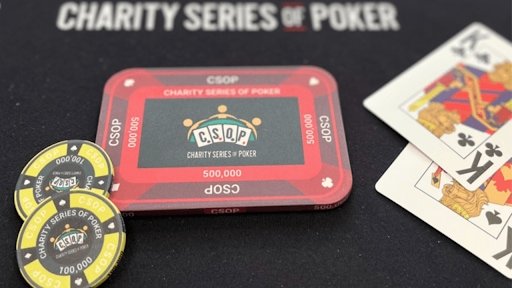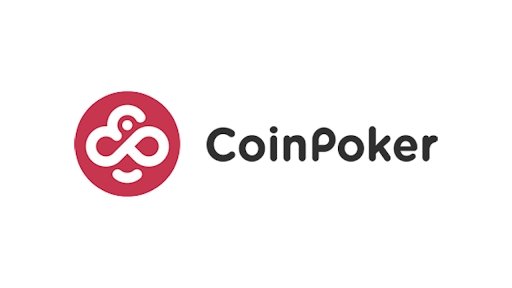Blockchain technology and cryptocurrencies have emerged as revolutionary forces, not just in finance but also in the iGaming industry. This convergence of technology is reshaping how games are played, how transactions are made, and how trust is established between players and operators. With the increasing demand for transparency, security, and convenience, the iGaming sector is turning to these innovations to address longstanding issues such as fraud, data breaches, and slow transaction times.
Blockchain fundamentally operates as a decentralized technology that allows for secure and transparent record-keeping. Cryptocurrencies, such as Bitcoin and Ethereum leverage blockchain technology to facilitate direct peer-to-peer transactions, eliminating the need for middlemen. Together, they provide a foundation for a new era of gaming where players can engage in fair play, maintain privacy, and experience seamless transactions.
This article explores the multifaceted role of blockchain and cryptocurrencies in iGaming, highlighting their benefits, challenges, and future prospects.
Related posts:
- The Role of Blockchain in iGaming
Blockchain technology significantly improves transparency, security, and efficiency within the iGaming industry. It addresses the critical concerns players have regarding fairness and trustworthiness in online gaming environments.
- Transparency: One of the key advantages of blockchain is its transparency. Every transaction is recorded in a public ledger that all participants can access. This capability allows players to confirm the outcomes of games and the integrity of the platform. For instance, in a blockchain-based casino, every bet placed and every payout made can be tracked and audited, providing players with confidence that the games are fair.
- Decentralization: Traditional online gaming Many platforms typically depend on centralized servers, which may be susceptible to hacking and fraud. In contrast, blockchain’s decentralized nature reduces this risk by distributing information among various nodes. This decentralization ensures that there is no single point of failure, which makes it much more difficult for malicious individuals to alter outcomes or access sensitive information.
- Data Security: Blockchain employs advanced cryptographic methods to protect data. This strong security is essential in protecting player information and transaction details. In traditional gaming systems, sensitive data can be vulnerable to breaches, but blockchain’s encrypted structure minimizes this risk. For example, player funds and personal data stored on a blockchain are far less susceptible to unauthorized access than data held in conventional databases.
- Advantages of Cryptocurrencies in iGaming
Cryptocurrencies are rapidly gaining traction in the iGaming world, and for good reason. They provide several benefits compared to conventional payment methods, making them a popular choice for players and operators alike.
- Faster Transactions: Cryptocurrency transactions are processed almost instantly, allowing players to make deposits and withdrawals without the long wait times associated with traditional banking. In a typical scenario, a player wishing to withdraw winnings from a traditional online casino may have to wait several days for the transaction to process. However, with cryptocurrencies like Bitcoin or Ethereum, this process can take just a few minutes, significantly enhancing the player experience.
- Lower Transaction Fees: Conventional payment methods frequently come with hefty processing fees, particularly for transactions across borders. In contrast, cryptocurrencies typically involve lower fees since they eliminate the need for intermediaries such as banks and payment processors. This cost reduction benefits both players, who enjoy lower fees, and operators, who can increase their profit margins.
- Global Access: Cryptocurrencies provide a solution for players in areas where access to conventional banking services is restricted. For instance, many players in countries with strict banking regulations or unstable currencies can still participate in online gaming using cryptocurrencies. This global access allows operators to explore new markets and appeal to a wider range of players.
- Anonymity and Privacy: Privacy is a significant concern for many online gamers. Cryptocurrencies allow players to engage in gaming without revealing their personal information. Unlike credit card payments that require extensive personal data, crypto transactions can be made using only a wallet address, providing an added layer of anonymity that appeals to privacy-conscious players.
- Popular Cryptocurrencies Used in iGaming
Numerous cryptocurrencies have emerged as popular choices within the iGaming industry. Each cryptocurrency has its unique attributes that make it ideal for various types of transactions.
- Bitcoin: Bitcoin, as the first cryptocurrency, is the most commonly accepted form of digital currency in iGaming. Its security, decentralization, and established market presence make it a top choice for both players and operators. Numerous casinos provide bonuses and promotions that are tailored specifically for Bitcoin deposits, further incentivizing its use.
- Ethereum: Recognized for its ability to support smart contracts, Ethereum offers functionality that extends beyond mere transactions. Smart contracts can streamline multiple facets of gaming, such as payouts and game mechanics. This automation minimizes the likelihood of human mistakes and improves the gaming experience by ensuring that conditions are met before funds are released.
- Litecoin, Ripple, and Dogecoin: These alternative cryptocurrencies, commonly referred to as altcoins, have become popular because of their distinct characteristics. For instance, Litecoin is known for its fast transaction times, this makes it an appealing choice for players who want fast deposits and withdrawals. Ripple, designed for global money transfers, offers low transaction costs and rapid processing, appealing to international players. Dogecoin, originally created as a meme, has carved out a niche in the iGaming space, often used for tipping or microtransactions due to its low fees.
- Stablecoins (e.g., USDT, USDC): Stablecoins are linked to fiat currencies, offering a stable value. This stability is crucial for players who wish to mitigate the price fluctuations commonly seen with cryptocurrencies. For example, players can deposit and withdraw using USDT or USDC, ensuring that their funds maintain a consistent value relative to the US dollar. This predictability enhances the overall gaming experience by minimizing the impact of price fluctuations.
- Blockchain-Based Games and Platforms
The introduction of blockchain technology has opened the door to groundbreaking advancements in gaming experiences and platforms that leverage its unique attributes.
- Provably Fair Games: Provably fair gaming is a groundbreaking concept that enables players to confirm that game outcomes are fair. This is achieved through cryptographic algorithms that provide proof of randomness. For example, a blockchain-based slot game might utilize a unique seed generated by the player, ensuring that each spin is random and verifiable. Players can access the game’s transaction history to confirm that results were not manipulated.
- Blockchain-Only Casinos: Some casinos operate exclusively on blockchain technology, accepting only cryptocurrency payments. Platforms like BitStarz and FortuneJack cater to the increasing interest in gaming that uses cryptocurrencies. These casinos typically offer enhanced features such as instant payouts, lower fees, and a wider variety of gaming options, including live dealer games that utilize blockchain technology for transparency.
- Smart Contracts for Automation: Smart contracts are automated agreements where the terms are encoded directly into the software. In iGaming, smart contracts can automate payouts, bonuses, and game mechanics, reducing the need for manual intervention. For instance, a betting platform could use a smart contract to automatically distribute winnings based on predefined conditions, ensuring quick and accurate payouts.
- Benefits of Blockchain for Operators
Blockchain technology offers several advantages for iGaming operators, streamlining operations and enhancing security while reducing costs.
- Cost Reduction: By eliminating intermediaries and their associated fees, blockchain technology allows operators to reduce transaction costs significantly. This decrease in costs can be especially helpful for new businesses or smaller operators looking to compete in a crowded market. Operators can also pass these savings to players as improved odds or more generous bonuses, enhancing their competitive edge.
- Enhanced Security: The fact that blockchain operates in a decentralized manner minimizes the risk of fraud and chargebacks. Because transactions are documented on an unchangeable ledger, the likelihood of disputes is significantly reduced. This enhanced security not only protects operators from financial losses but also builds trust with players who can be confident in the integrity of the platform.
- Access to New Markets: Embracing blockchain and cryptocurrency can open doors to new audiences, particularly tech-savvy players and younger demographics. By offering crypto payment options, operators can attract players who prefer digital assets over traditional payment methods. This ability to reach new markets is especially important in a rapidly evolving gaming landscape.
- Regulatory Challenges and Compliance Issues
While the advantages of blockchain and cryptocurrencies are compelling, they also introduce a range of regulatory challenges that operators must navigate.
- Global Regulation: The regulatory landscape for cryptocurrencies varies widely across jurisdictions. Some countries have embraced crypto gaming, while others impose strict regulations or complete prohibitions. For example, while jurisdictions like Malta and the UK have established frameworks for crypto gambling, countries such as China and India maintain stringent restrictions. Operators need to keep up-to-date with the regulatory landscape in every region they serve to remain compliant.
- Compliance Requirements (KYC & AML): Compliance with Know Your Customer (KYC) and Anti-Money Laundering (AML) regulations is essential for all iGaming platforms. These regulations require operators to verify player identities to prevent fraudulent activities. In a blockchain environment, where anonymity is a feature, ensuring compliance can be challenging. Operators must develop robust KYC processes that balance player privacy with regulatory obligations.
- Adapting to Regulatory Changes: As regulations surrounding cryptocurrencies and blockchain continue to evolve, iGaming operators must remain flexible and adaptive. Keeping informed about regulatory updates is essential for ensuring legal operations and protecting player interests. This adaptability may involve revising terms and conditions, implementing new compliance measures, or investing in legal counsel to navigate complex legal frameworks.
- The Future of Blockchain and Cryptocurrencies in iGaming
The future of blockchain and cryptocurrencies in iGaming looks promising, with several emerging trends and innovations poised to reshape the industry.
- Cross-Platform Portability: Blockchain enables players to carry their digital assets across different platforms, enhancing the gaming experience. This portability allows players to maintain their in-game achievements and assets regardless of the casino they choose. For instance, a player could gain rewards in one game and apply them in another, fostering a more cohesive gaming ecosystem.
- NFTs in Gaming: Non-fungible tokens (NFTs) are distinctive digital assets that can signify ownership of in-game items, characters, or collectibles. The integration of NFTs in iGaming opens new opportunities for player interaction, allowing players to buy, sell, or trade their unique assets. For instance, a player might possess a unique in-game item as an NFT, adding value and collectibility to their gaming experience.
- DeFi Integration: Decentralized Finance (DeFi) is making waves in various sectors, including gaming. By integrating DeFi tools such as liquidity pools and yield farming, iGaming platforms can offer players additional ways to earn rewards on their crypto holdings. This integration not only incentivizes players to engage more deeply with the platform but also enhances the overall gaming ecosystem.
- Metaverse Gaming: The idea of the metaverse, which is a virtual reality environment where users can engage with a digital landscape and each other, is gaining traction. Blockchain and cryptocurrencies are expected to play a central role in metaverse gaming, enabling seamless transactions and asset ownership within these immersive environments. Players may participate in virtual casinos, attend live events, or engage in multiplayer games with blockchain-secured assets
- Risks and Challenges for Players
Despite the many benefits, players should also consider the potential risks that come with blockchain and cryptocurrency use in iGaming.
- Volatility: The prices of cryptocurrencies can fluctuate significantly, presenting a risk for players. A sudden drop in the value of a player’s holdings could impact their gaming budget and overall experience. For example, a player who deposits $500 worth of Bitcoin could find that their funds have decreased significantly in value due to market fluctuations. Players need to understand the risks and be prepared for potential losses associated with crypto volatility.
- Wallet Security: The security of digital wallets is paramount. Players must take measures to secure their wallets, as losing access to a wallet can result in the irreversible loss of funds. Adopting best practices like using hardware wallets and enabling two-factor authentication, and keeping recovery phrases private, is essential for safeguarding assets.
- Learning Curve: For new users, the intricacies of blockchain and cryptocurrency can feel overwhelming. Players may need to familiarize themselves with wallet setups, transaction fees, and the nuances of crypto exchanges. This learning curve can create obstacles for those who are not tech-savvy, potentially deterring them from engaging in blockchain-based gaming.
- Conclusion
Blockchain and cryptocurrencies are transforming the iGaming landscape, providing various advantages that improve the player experience and operator efficiency. Although there are challenges like regulatory compliance and price fluctuations, the future of blockchain in iGaming appears bright. By leveraging these technologies, the industry can create a more secure, transparent, and innovative environment that meets the evolving expectations of players.
As blockchain technology evolves, we can anticipate further integration of digital assets, decentralized finance, and immersive experiences in the iGaming space. With careful consideration of the risks and ongoing adaptation to regulatory changes, blockchain and cryptocurrencies have the potential to revolutionize iGaming, providing a safe, fair, and engaging experience for players around the globe.













